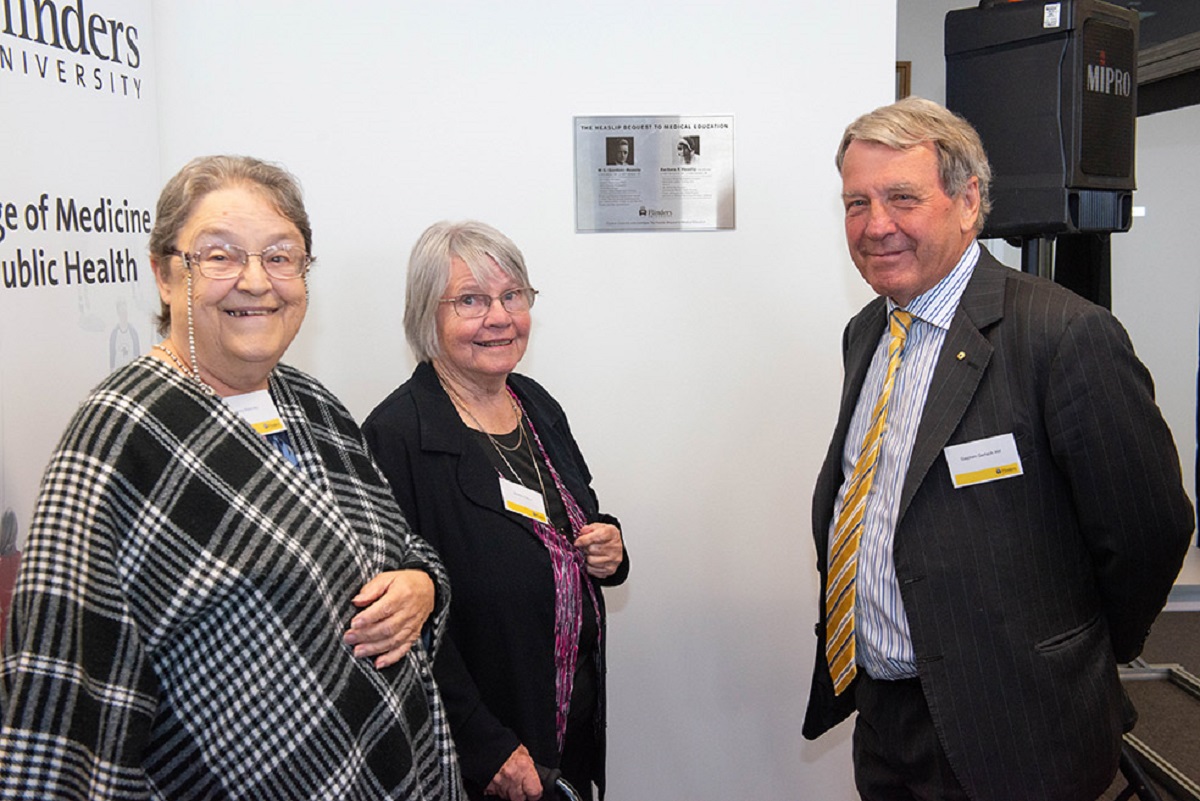
A plaque recognising the ongoing importance of the Heaslip Bequest to Medical Education was unveiled at a reception on Wednesday 21 November, attended by Heaslip family members and dignitaries at Flinders University.
This funding source has had a significant influence on how teaching of medicine at Flinders has developed, resulting in the University creating this new public tribute to the Heaslip family and their valuable legacy.
“The Heaslip Bequest has made a significant contribution to the development of medical education at Flinders University,” says Professor Jonathan Craig, Vice-President, College of Medicine and Public Health at Flinders University.
“The University’s medical program is recognised internationally for its innovative curriculum that delivers outstanding clinical and academic training, integrating clinical medicine with a strong underpinning in biomedical science.
“The bequest has greatly assisted the University in our mission to pursue excellence in contemporary teaching, reflecting Gordon and Barbara’s own visionary and future-focused thinking.”
Flinders University became the beneficiary of the Heaslip Bequest to Medical Education through a competitive process in 1982. A fund created by the late Gordon Heaslip (1902-1961), one of Australia’s first NHMRC medical researchers, was transformed into a bequest after the passing of his wife Barbara (1907-1982). The Australian Executive Trust and Flinders staff members used this fund to establish the Heaslip Medical Education Foundation in 1984, to manage the Trust and meet the Heaslips’ specifications of “improving the education of medical graduates as modern and efficient as possible, while based on the equal importance of the twin aspects of medical practice, namely cure and prevention”.
The initial allocation of funds went to a review of the teaching of surgery within the Flinders curriculum, undertaken by David Prideaux; the report informed options for teaching surgery in the new Flinders Medical Centre, where David Prideaux remained to guide the department of medical education.
The Heaslip Bequest funded an ongoing fellowship salary and the role continued to evaluate and make recommendations on the medical curriculum. Heaslip Fellows include Professor Elizabeth Farmer (1992), Emeritus Professor David Prideaux (1993), Sue Henry Edwards (1999), Jennifer Kingsley Savage (2000), Dr Helena Ward (2008 -12), Dr Catherine Howell (2013-15) and Dr Annie Murray.
Emeritus Professor Peter McDonald, a past staff member at the Flinders School of Medicine, has been working with historian Dr Robert Fitzsimmons on two volumes dedicated to documenting the lives of Gordon and Barbara Heaslip, and their ongoing influence through the bequest. Historic source material gathered for these books has been donated to the Flinders Special Collection Library, which is where the commemorative Heaslip Bequest plaque is located.

